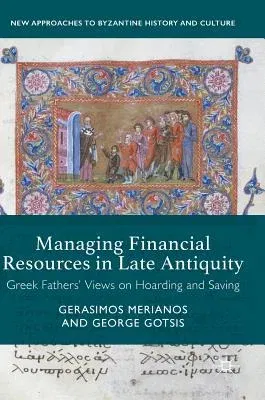Gerasimos Merianos
(Author)Managing Financial Resources in Late Antiquity: Greek Fathers' Views on Hoarding and Saving (2017)Hardcover - 2017, 3 April 2018

Qty
1
Turbo
Ships in 2 - 3 days
In Stock
Free Delivery
Cash on Delivery
15 Days
Free Returns
Secure Checkout

Part of Series
New Approaches to Byzantine History and Culture
Print Length
257 pages
Language
English
Publisher
Palgrave MacMillan
Date Published
3 Apr 2018
ISBN-10
1137564083
ISBN-13
9781137564085
Description
Product Details
Authors:
Book Edition:
2017
Book Format:
Hardcover
Country of Origin:
NL
Date Published:
3 April 2018
Dimensions:
21.01 x
14.81 x
1.6 cm
ISBN-10:
1137564083
ISBN-13:
9781137564085
Language:
English
Location:
London
Pages:
257
Publisher:
Weight:
476.27 gm